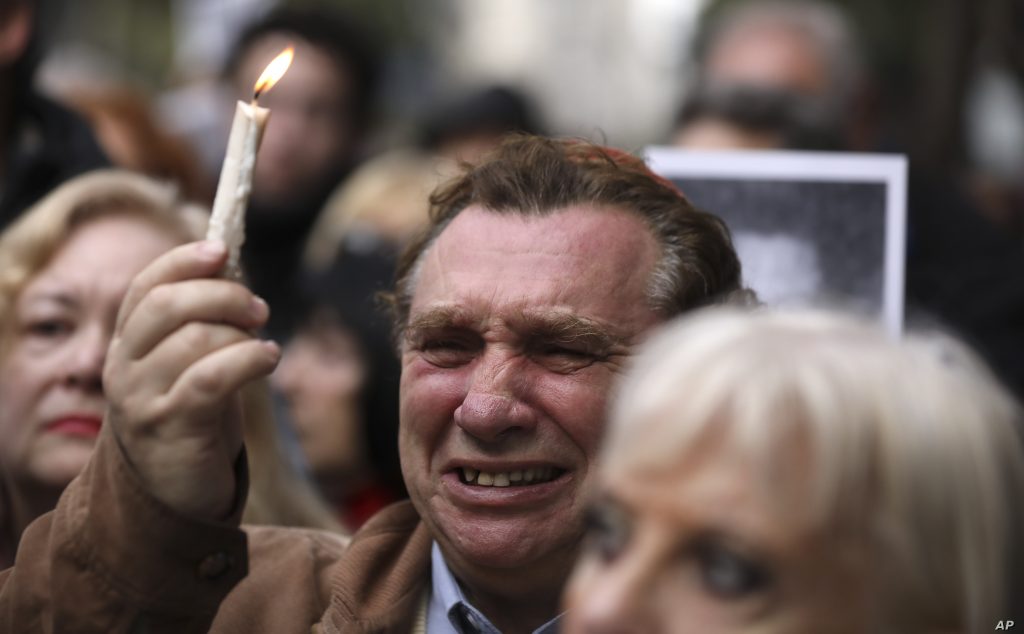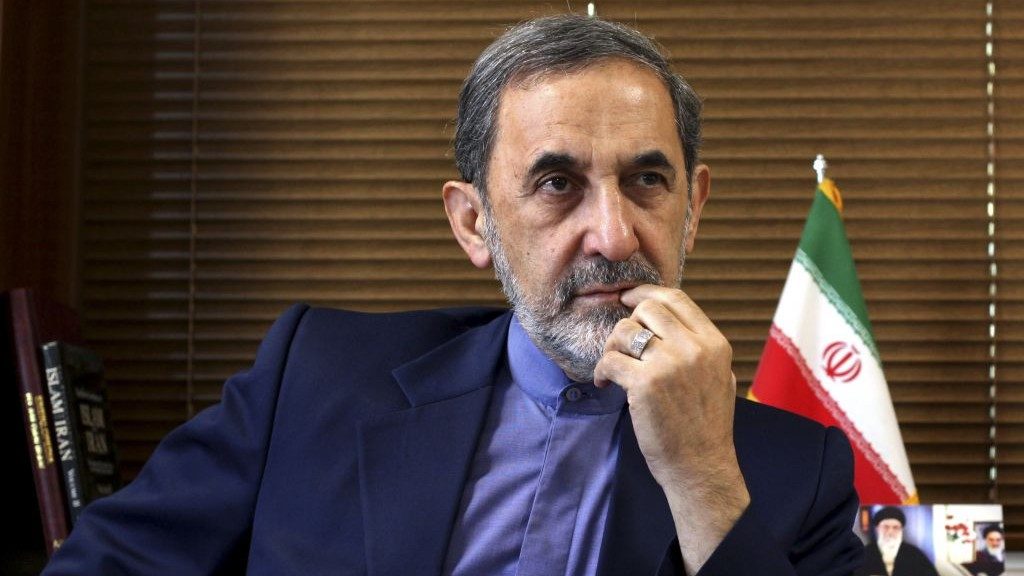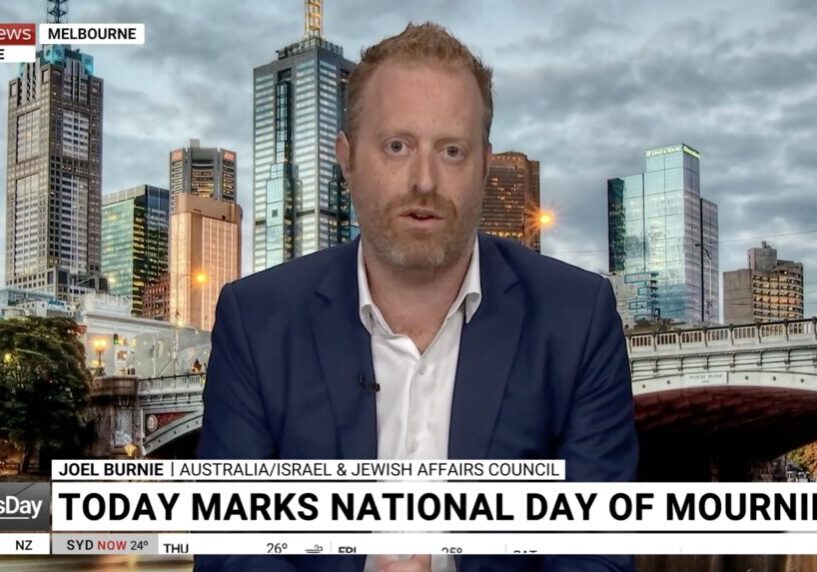Australia/Israel Review
Argentinian politics and the quest for justice
Aug 6, 2019 | Ben Cohen

In 2006, Argentine government lawyers led by the federal prosecutor Alberto Nisman formally named the eight leading Iranian officials who planned the bombing attack 12 years earlier, at 9:53am on July 18, 1994, on the AMIA Jewish centre in downtown Buenos Aires.
That announcement, along with the further achievements of Nisman’s team that were to unfold over the next couple of years, marked a high point for the AMIA investigation. The investigation had only recently been reconstituted by the late Argentine President Nestor Kirchner following the ignominious collapse of the corruption-ridden probe launched by his predecessor Carlos Menem. Argentine judge Rodolfo Canicoba Corra issued arrest warrants for the eight, and the following year, Interpol, the international law-enforcement agency, published “red notices” – an alert sent to all Interpol member states with details of wanted fugitives – for five of them, along with an additional one for Imad Mughniyeh, the chief of staff of the Lebanese terrorist organisation Hezbollah.
As Argentina mourned the 25th anniversary of the AMIA atrocity in July, joined by Jewish organisations and democratic governments around the world, the prevailing question in the air was, “Where are they now?”
Two of the eight men named by the Argentine prosecutors in 2006 have since died. The former Iranian President Ali Hashemi Rafsanjani, alleged to have called the meeting where the AMIA bombing was first conceived, passed on in 2017, having amassed a personal fortune of US$1 billion, and described admiringly in his BBC obituary as a “pragmatic conservative” who “sought to encourage a rapprochement with the West and re-establish Iran as a regional power.”
Hezbollah’s Imad Mughniyeh died rather as he lived – in a 2008 car bombing in Damascus that brought to an end a terrorist career that included not just the AMIA bombing and the earlier bombing of the Israeli embassy in Buenos Aires in 1992, but also the 1983 suicide attacks on the US embassy and US Marine barracks in Beirut that took 350 lives.

Suspected Iranian mastermind Ali Velayati: Still a senior official
Meanwhile, another one of the Iranian leaders wanted by Argentina, Ali Akbar Velayati, now serves as a senior adviser on foreign policy to the Teheran regime’s Supreme Leader, Ayatollah Ali Khamenei. (Strikingly, it was Velayati who attended Mughniyeh’s funeral in 2008 as Khamenei’s personal representative.) As for the five remaining Interpol red-notice subjects, they are not only alive and well, but have globe-trotted extensively in the meantime, visiting NATO member Turkey, as well as Qatar, Pakistan, Oman, Brazil and 15 other countries, the great majority of whom have full diplomatic relations with the United States, the European Union and Argentina itself.
The bottom line, then, remains the same as it was on July 19, 1994 – one day after the AMIA bombing – when the centre of Buenos Aires was strewn with rubble and smoke, and emergency services were pulling lifeless bodies from the wreckage.
No one, not a single person, has been tried and convicted for their role in Latin America’s worst terrorist atrocity, in which 85 people died and more than 300 were wounded.
To add insult to that profound injury, the one individual whose integrity and dedication were never in doubt – federal prosecutor Nisman – was assassinated in 2015, a few hours before he was due to unveil a complaint against former President Cristina Fernández de Kirchner and her key aides for reaching an underhand agreement with Iran that would have exonerated the AMIA executioners. Like Velayati, Kirchner – who deliberately misrepresented Nisman’s death as a suicide, and who may have even been involved in his murder – has remained in politics, protected from the clutches of the law by her parliamentary immunity as a senator, and presently running for election as Argentina’s vice president on a ticket led by her former chief of staff, Alberto Fernandez.
This is the scandalous background against which Argentina marked this most significant of all the AMIA anniversaries thus far. Politically, the most important consequence was the declaration of the Argentine Government blacklisting Hezbollah – a “terrorist organisation” that “continues to represent a current and active threat to national security and the integrity of the financial, economic order of the Argentine Republic.”
This decision is the centrepiece of a broader effort by Mauricio Macri, Argentina’s current President, to lead a regional campaign against Hezbollah’s financial and political clout throughout Latin America. The Western hemisphere has been a vital source of funds for Hezbollah – much of it from the trafficking of cocaine in concert with senior officers in the Venezuelan military – as well as fake documents and other prizes essential to the functioning of a terrorist organisation. As a result, Hezbollah has a head start of at least a decade over Macri’s counterterrorism initiative, but nevertheless, there is a renewed optimism that Argentina and its neighbours will begin using the available legal tools to squeeze Hezbollah from their continent.
Equally, though, this latest burst of Argentine energy against Hezbollah and its Iranian sponsors could come to an abrupt halt if Macri loses his re-election bid in October.
Having presided over four years of bitter austerity policies, and with inflation currently climbing at 51% annually, Macri’s popularity at home has collapsed. A government with Cristina Kirchner at its centre is not an inevitability, but polling over the last few months shows that Macri will have his work cut out for him if he is to win a second term in office.
Should Argentina decide to subject itself to Kirchner’s leadership again, it is very unlikely that she will turn the country’s economy around. But what is certain is that Argentina will be saddled with a leadership that Western countries can never trust, in the most basic sense of that word, with counterterrorism strategy. If the core lesson of the AMIA bombing is to be finally applied, in the form of a concerted campaign to drive Iran and its proxies out of Latin America, then Macri needs to win in October.






